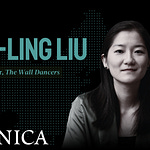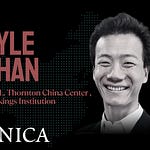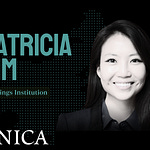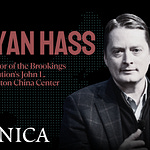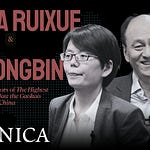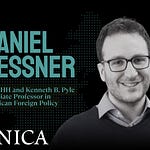China's most famous Canadian, Mark Rowswell, became famous — or at least "feimerse" — after appearing in the Spring Festival Gala on CCTV in 1990. In recent years, he's pioneered a hybrid between the xiangsheng (相声 xiàngsheng; crosstalk) for which he's known and Western-style stand-up comedy. Mark joined Anthony Tao and David Moser at the storied Bookworm on the final night of the Bookworm Literary Festival on March 30 to talk about the Chinese language, comedy, and the difficulties of Chinese soft power. What to listen for on this week’s Sinica Podcast: 11:51: Learning Chinese is difficult — however, the specific types of difficulties that individuals are presented with often vary widely. Ethnically Chinese people are often held to a higher linguistic standard than their Caucasian counterparts, whereas foreigners who speak Chinese have become less of a rarity — and consequently less professionally valuable — in recent years. Mark explains: “I’ve had friends say, ‘You know the Chinese respect the ugly American. They don’t respect the sensitive, understanding Chinese-speaking foreigner. They like foreigners to be foreign.’” 29:22: Dīng Guǎngquán 丁广泉, a late titan of the Chinese comedy world, was one of Mark and David’s mentors. Non-judgmental and highly attentive to his disciples’ strong and weak points (he once wrote a scene describing David as muddle-headed and forgetful), he created a platform for many foreigners to enter the world of performance in Chinese. Mark states: “For us, it was very much a partnership, because he wasn’t all that well known in China, either. I had the name, the image, the fame that brought these opportunities to perform, but he was the guy who knew how to do it. I wouldn’t know how to do this by myself. That had a huge impact on me.” 32:43: “Your Chinese is so good!” A woman had overheard Mark telling Anthony the name of a restaurant in Chinese and promptly complimented him. According to Mark, the reactions he gets when speaking Chinese with shopkeepers or taxi drivers hasn’t changed much in 20 years, pushing back on the idea that the novelty of foreigners speaking Chinese has faded. David quips, “What does that tell you? That Chinese is very hard to learn.” “Well,” Mark contests, “we still do a bad job of it.” 44:04: Is the difficulty of the Chinese language a hindrance on China’s ability to export soft power? Mark explains: “First of all, the Chinese state sort of organizes everything so it has to be an official program. And secondly, Chinese people, I think, just tend to tense up when they sense that they’re dealing with foreigners — they have to be careful about what they say, and they’re a ‘representative of China,’ you know, they have this huge emotional burden that they bring to it. I think that’s the main problem China has with soft power: They don’t let their people express that power.” Recommendations: David: Recommends investigating books by Earnshaw Books, a Hong Kong–based publishing house, founded by Graham Earnshaw. Graham’s music can also be found online on his Bandcamp page. Mark: Thirteen Invitations (十三邀 shísān yāo), by Xǔ Zhīyuǎn 许知远, a video series that can be found on Tencent Video here. Anthony: The website What’s on Weibo, the Beijing Invitational Craft Beer Festival, hosted by Great Leap, and The Last Tribe on Earth, by Liane Halton and Anthony Tao.
This podcast was edited and produced by Kaiser Kuo and Jason MacRonald.
See Privacy Policy at https://art19.com/privacy and California Privacy Notice at https://art19.com/privacy#do-not-sell-my-info.





